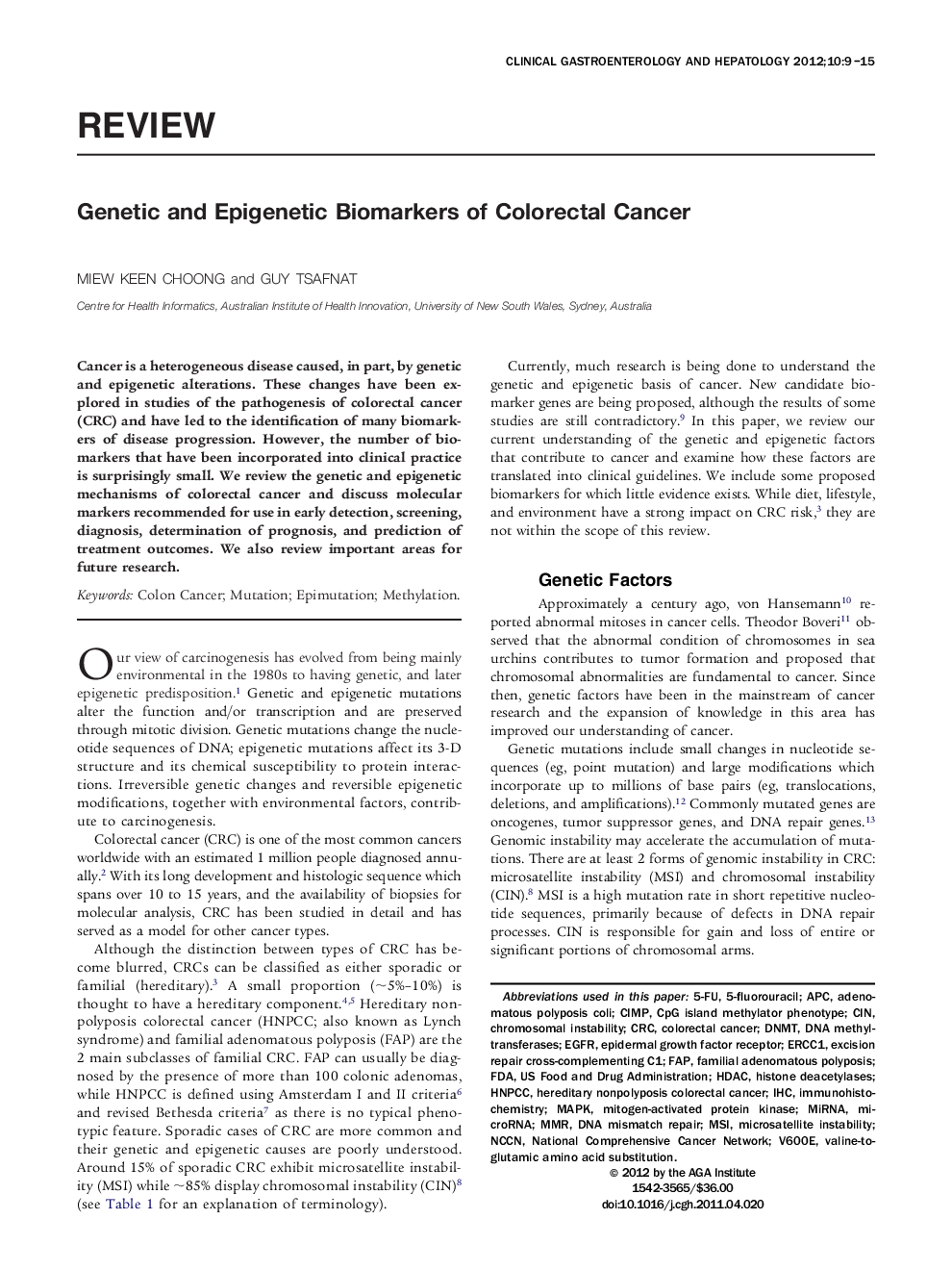| Article ID | Journal | Published Year | Pages | File Type |
|---|---|---|---|---|
| 3283149 | Clinical Gastroenterology and Hepatology | 2012 | 7 Pages |
Abstract
Cancer is a heterogeneous disease caused, in part, by genetic and epigenetic alterations. These changes have been explored in studies of the pathogenesis of colorectal cancer (CRC) and have led to the identification of many biomarkers of disease progression. However, the number of biomarkers that have been incorporated into clinical practice is surprisingly small. We review the genetic and epigenetic mechanisms of colorectal cancer and discuss molecular markers recommended for use in early detection, screening, diagnosis, determination of prognosis, and prediction of treatment outcomes. We also review important areas for future research.
Keywords
EGFRFDAEpimutationDNA methyltransferasesCIMPV600EHNPCCNCCNMMRMSIDnmtFAPAPCHDAC5-FUMAPKCpG island methylator phenotypeFAP, Familial Adenomatous Polyposisadenomatous polyposis coliUS Food and Drug AdministrationImmunohistochemistryIHCMicrosatellite instabilityChromosomal instabilityDNA mismatch repairmutationCinColorectal cancerHereditary Nonpolyposis Colorectal CancerColon cancerNational Comprehensive Cancer Network5-fluorouracilMethylationMicroRNAMiRNAhistone deacetylasesmitogen-activated protein kinaseERCC1CRCEpidermal growth factor receptor
Related Topics
Health Sciences
Medicine and Dentistry
Gastroenterology
Authors
Miew Keen Choong, Guy Tsafnat,
